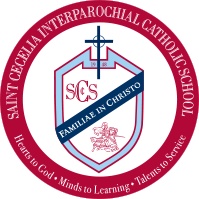Creative Leadership Activities for Middle School Students
Middle school is a crucial time for students to develop essential skills that will shape them into future leaders. It’s a stage where they start to form their identity and understand the importance of their actions. As educators and parents, it’s our responsibility to guide and encourage them to become confident, responsible, and effective leaders.
One of the most effective ways to do this is through engaging and creative leadership activities. These activities teach students essential skills such as communication, teamwork, and problem-solving and allow them to discover their strengths and passions. By providing middle school students with opportunities to step up and stand out, we can empower them to become leaders in their own right and positively impact their communities.
The Value of Leadership Skills in Middle School
Leadership skills are important in middle school as students navigate a pivotal phase of their growth and development. Students transition from childhood to adolescence during this time, and their social and emotional learning becomes critical.
Leadership skills such as effective communication, decision-making, teamwork, and problem-solving support academic achievement and social competence. Students enhance their interpersonal relationships by learning how to express themselves confidently, handle conflicts maturely, and work collaboratively with peers.
Additionally, developing leadership skills at this stage fosters a sense of responsibility and empathy, encouraging students to be accountable for their actions and understand different perspectives. These skills also build a solid foundation for future life stages, including high school, college, and career.
Classroom Activities that Foster Leadership
Incorporating leadership activities in the classroom can be an effective method of cultivating these essential skills.
- Group projects, where students must collaboratively complete a task, fostering teamwork, negotiation, and delegation skills.
- Role-play exercises, where students are given a scenario and must find solutions to encourage problem-solving and decision-making skills.
- Class debates can also be an excellent way to teach students how to communicate effectively and respectfully disagree with others.
- A classroom job system, where students are assigned specific roles and responsibilities, can instill a sense of accountability.
- Organizing a class fundraiser or community service project can also be a powerful way to teach students about social responsibility as they get involved in causes and learn the importance of giving back to the community.
Educators can seamlessly integrate leadership development into daily learning by embedding these activities into the curriculum.
Related Post: The Many Benefits of Extracurriculars For Middle School Students
The Impact of Extracurricular Activities on Leadership Development
Extracurricular activities provide an invaluable opportunity for middle school students to explore their interests while developing leadership skills.
Involvement in clubs, sports teams, and volunteer organizations offers an environment where students can practice teamwork, responsibility, and initiative outside the traditional classroom setting.
- A leadership role in a student council, for instance, allows students to plan events, manage budgets, and represent their peers, fostering skills in organization, fiscal responsibility, and representation.
- A sports team requires collaboration, strategic planning, and, often, the ability to motivate and inspire others – all essential leadership qualities.
- Volunteer work promotes empathy, a critical aspect of effective leadership. It teaches students to understand and respect diverse perspectives and backgrounds.
Hence, encouraging participation in extracurricular activities can significantly contribute to shaping students into influential leaders.
The Role of Peer Mentoring in Developing Future Leaders
Peer mentoring is pivotal in shaping middle school students into future leaders. A system where older or more experienced students guide younger or less experienced ones fosters an environment of mutual learning and respect.
As mentors, students learn to lead by example, practice active listening, and provide constructive feedback – all integral elements of effective leadership. Incorporating peer mentoring into the school culture elevates academic performance and fosters a supportive learning environment where students can thrive.
Related Post: How to Prep Your Middle School Student For the Start of High School
Promoting Leadership at Home
Leadership development should not be confined to the school environment; it should also be nurtured at home. Parents can contribute significantly to their children’s leadership journey by incorporating activities that foster necessary skills.
- Assigning chores can instill responsibility and accountability.
- Family discussions allow kids to voice their opinions and ideas, bolstering their communication skills.
- Parents can encourage their children to take the lead in planning family events or outings, thus enhancing their organizational and decision-making abilities.
- Parents can also involve children in community service. This experience can deepen their understanding of empathy and social responsibility, core aspects of leadership.
- Reading books about influential leaders and discussing their qualities can inspire kids and broaden their perspective on leadership.
- Finally, parents should remember that their actions set a powerful example. Demonstrating respect, kindness, perseverance, and honesty can significantly influence children’s attitudes and behavior.
Promoting leadership at home complements school efforts and offers an enriching environment for children to explore and refine their leadership potential.
St. Cecelia Interparochial Catholic School
To learn more about academics or enrollment, please visit our website or contact us online.

About Us
St. Cecelia Interparochial Catholic School (SCS) offers an academically challenging and globally minded interdisciplinary education to children in PreK-3 through 8th grade.
Contact Us
1350 Court Street
Clearwater, FL 33756
Phone: 727-461-1200
Fax: 727-446-9140
Admissions: 727-461-1207
Extended Day: 727-385-4851
(3:30-6:00pm)
Quick Links
© Copyright 2015 Saint Cecelia Interparochial Catholic School. Website designed and developed by BayshoreSolutions.

